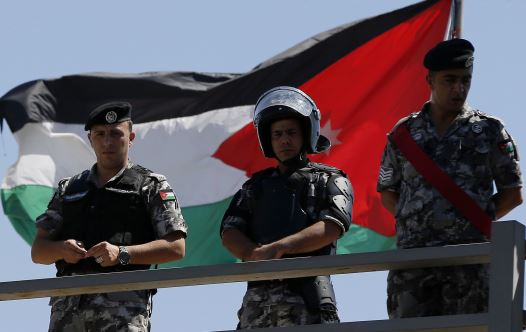Jordan is falling apart and Israel could have helped - opinion
Israel missed a huge opportunity to team up with Jordan and set an example for the whole region about how making peace can benefit everyone.
 Jordanian riot police stand guard in front of a Jordanian flag.ByMARK LAVIE / THE MEDIA LINE
Jordanian riot police stand guard in front of a Jordanian flag.ByMARK LAVIE / THE MEDIA LINE